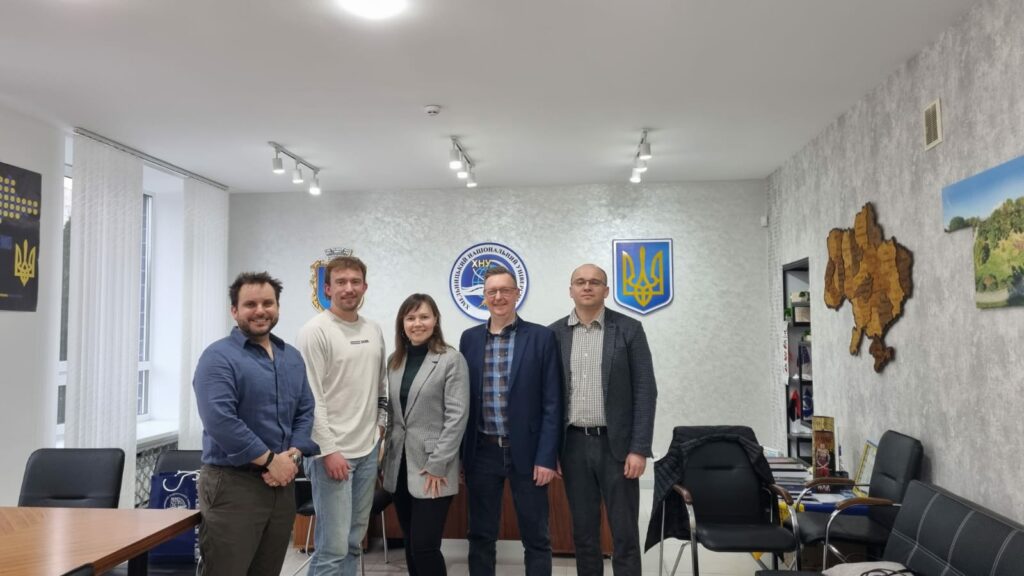You might be surprised to learn who the latest subject of a BBC Radio 4 podcast is. Yes — it’s us: Khmelnytskyi National University!
In the heart of Ukraine, amid air raid alerts and the challenges of war, KNU not only continues to operate — it drives forward scientific innovation that the entire world is now hearing. One of the world’s most prominent media brands, BBC has produced a documentary podcast titled “Scarred”, in which our university plays a central role!

BBC Radio 4 tells the story of the environmental consequences of the war in Ukraine, and it was to Khmelnytskyi National University that Professor Christian Dunn from Bangor University (United Kingdom) personally came to conduct field research. He was accompanied by Harrison Lewis,a BBC producer who also contributed to the making of the podcast. Together with researchers from our Department of Ecology, they examined unique soil samples from areas affected by missile and drone strikes.
During his visit, Professor Dunn also held an official meeting with Serhii Matiukh, Rector of Khmelnytskyi National University,where they discussed potential avenues for scientific collaboration and future international projects. Kateryna Skyba, Vice-Rector for Academic Affairs, coordinated the visit.


“Khmelnytskyi National University is deeply impressive in its resilience and unwavering commitment to science under the most challenging conditions,” remarked Professor Dunn.
International recognition. Professionalism. Courage. This is KhNU.
Our faculty and researchers — including Professor Nataliia Myronova— shared their stories with BBC, speaking about their daily scientific work in the midst of war. This isn’t just soil research — it’s a story of strength, hope, and science that can change the world.

Khmelnytskyi National University expresses its heartfelt gratitude to the BBC team, Professor Christian Dunn, and Bangor University for their sincere attention to Ukraine, for supporting Ukrainian scientists, and for helping share the truth about the war and its consequences with a global audience. We believe this collaboration marks only the beginning of a long path of joint research, academic exchanges, and new discoveries that will help not only to rebuild but also to make Ukraine stronger, more resilient, and environmentally safer.
The podcast is now available on BBC Radio 4 and BBC Sounds. - https://www.bbc.co.uk/programmes/m0028zyd